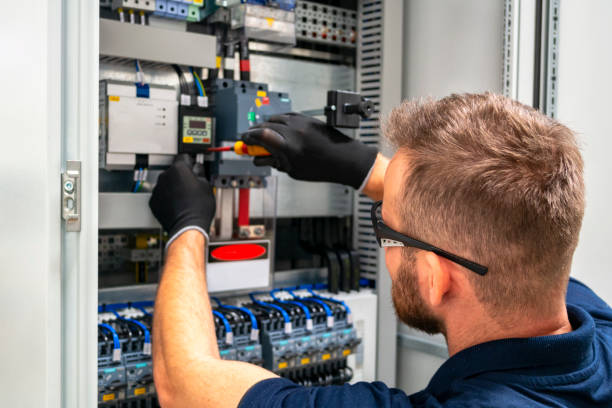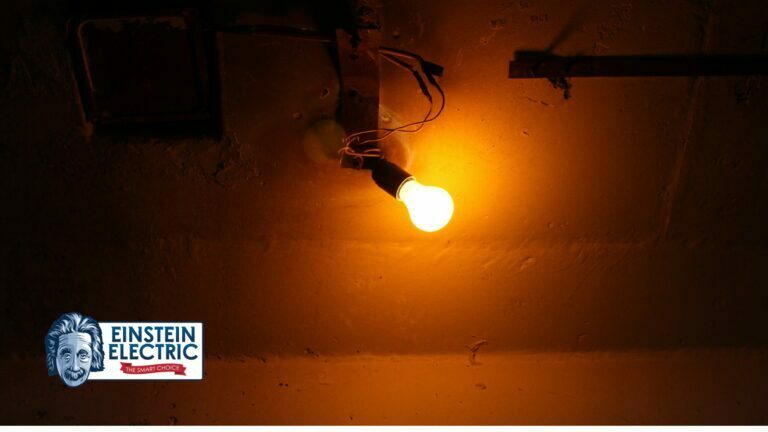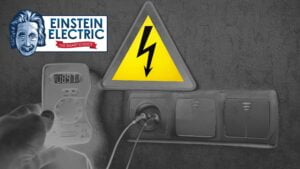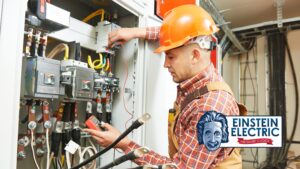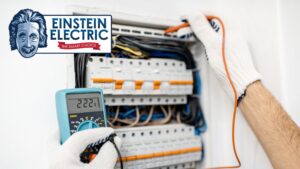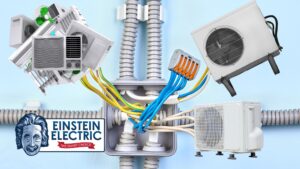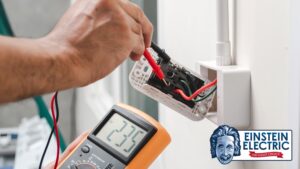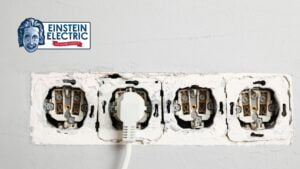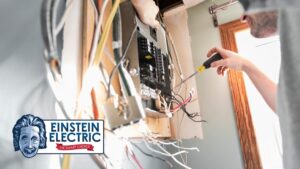Introduction
In our modern world, electricity powers almost every aspect of our lives. While it has undoubtedly made our lives more convenient, it also poses certain risks, especially when electrical emergencies occur. From power outages to electrical fires, being prepared and knowing how to respond to such situations is crucial for ensuring the safety of you and your home. In this blog, we will learn how to respond to electrical emergencies and protect your home. We will explore the essential tips and guidelines to help you stay safe and respond effectively to electrical emergencies.
Power Outages
Power outages can occur due to various reasons, including severe weather conditions or equipment failures. To stay safe during a power outage:
1. Prepare an emergency kit: Preparing an emergency kit is crucial for dealing with electrical emergencies. Make sure to include essential items such as flashlights, extra batteries, a battery-powered radio, and non-perishable food items. Flashlights provide necessary illumination during power outages, while extra batteries ensure their functionality. A battery-powered radio keeps you informed about emergency updates. Non-perishable food items guarantee a food supply that doesn’t require refrigeration. Being prepared with these items ensures that you can navigate through electrical emergencies with greater ease and comfort.
2. Unplug major appliances: During a power outage, it is important to unplug major appliances to protect them from potential power surges when the electricity is restored. Power surges can occur when the power grid comes back online after an outage, and they can damage sensitive electronics and appliances. By unplugging devices such as refrigerators, televisions, computers, and washing machines, you reduce the risk of damage caused by sudden voltage spikes. Once the power is restored, you can then plug in the appliances one by one, ensuring a smooth and safe transition without risking their functionality or longevity.
3. Use alternative light sources: When faced with a power outage, it is important to use alternative light sources such as flashlights or battery-powered lanterns instead of candles. While candles may seem like a convenient option, they pose a significant fire hazard, especially in situations where there may be flammable materials or when unattended. Flashlights and battery-powered lanterns provide a safe and reliable source of light without the risk of open flames. By opting for these alternatives, you can illuminate your surroundings effectively during an electrical emergency while minimizing the risk of accidental fires and ensuring the safety of yourself and your home.
4. Keep refrigerator and freezer doors closed: During a power outage, it is crucial to keep refrigerator and freezer doors closed to preserve perishable food for a longer duration. Opening the doors allows cold air to escape, causing the temperature inside to rise more quickly. By keeping the doors closed, you retain the cold air trapped inside, extending the time it takes for the temperature to rise and potentially spoil your food. This simple step can significantly prolong the freshness and safety of your perishable items, giving you more time to assess the situation and take appropriate actions. Remember, when in doubt, discard any perishable food that may have been compromised during the power outage to avoid the risk of foodborne illnesses.
Electrical Fires
Electrical fires are a serious hazard and can be caused by faulty wiring, overloaded circuits, or malfunctioning electrical appliances. If you encounter an electrical fire:
1. Call emergency services: Prioritize your safety and contact the fire department immediately.
2. Cut off the power supply: If possible, turn off the main electrical switch to prevent further fueling of the fire.
3. Use a fire extinguisher: If the fire is small and manageable, use a fire extinguisher specifically designed for electrical fires. Remember the PASS technique: Pull the pin, Aim at the base of the fire, Squeeze the handle, and Sweep side to side.
4. Evacuate and follow evacuation plans: If the fire becomes uncontrollable, evacuate the premises following your household’s predetermined evacuation plans and meeting points.
Electrical Shocks
Experiencing an electrical shock can be a terrifying situation. Here’s what to do if someone receives an electrical shock:
1. Ensure personal safety: When someone experiences an electrical shock, ensuring personal safety is paramount. It is crucial not to touch the person or any electrical source without taking precautions. The first step is to turn off the power supply if possible. If you are unable to do so, use a non-conductive object, such as a wooden broom or dry towel, to separate the person from the electrical source. This helps minimize the risk of electric shock spreading to you or others. Remember, your safety is crucial, and it is important to prioritize it while providing assistance to someone who has received an electrical shock.
2. Call for medical help: In the event of an electrical shock, it is vital to call for medical help, even if the shock appears minor. Electrical shocks can cause internal injuries that may not be immediately visible or apparent. The effects of electric shock on the body can be serious and potentially life-threatening. By calling emergency services immediately, trained medical professionals can assess the situation, provide necessary treatment, and ensure the individual receives appropriate care. It is always better to err on the side of caution and seek medical assistance promptly to minimize any potential complications or long-term consequences resulting from an electrical shock.
3. Provide first aid: In the event of an electrical shock, providing first aid is crucial. If the person is not breathing or has no pulse, it is important to begin CPR if you are trained to do so. Prompt initiation of CPR can help maintain blood circulation and increase the chances of survival. However, if you are not trained in CPR, focus on keeping the person comfortable and stable until medical professionals arrive. Ensure their airway is clear, monitor their vital signs, and provide reassurance and support. Remember, it is vital to seek medical help as soon as possible for a comprehensive evaluation and appropriate treatment.
General Safety Measures
1. Regularly inspect electrical cords and outlets: Regularly inspecting electrical cords and outlets is essential for maintaining electrical safety in your home. Check cords for signs of wear and tear, such as fraying or exposed wires. Look for any overheating, discoloration, or unusual odors around outlets. Damaged cords or faulty outlets can pose significant fire and electrical hazards. If you notice any issues, replace damaged cords immediately and have faulty outlets repaired or replaced by a qualified electrician. Taking proactive measures to address potential problems ensures the integrity of your electrical system and reduces the risk of electrical emergencies, protecting both your home and your loved ones.
2. Avoid overloading circuits: To maintain electrical safety in your home, it is crucial to avoid overloading circuits. Distribute your electrical appliances across multiple outlets to prevent overburdening a single circuit. Avoid using excessive extension cords or power strips, as they can lead to overheating and electrical fires. Be mindful of the electrical load each circuit can handle and ensure it is not exceeded. If you find that you frequently rely on extension cords or power strips, consider consulting with a qualified electrician to install additional outlets in your home. By practicing proper load distribution, you reduce the risk of electrical hazards and promote a safe and efficient electrical system.
3. Install ground fault circuit interrupters (GFCIs): Installing ground fault circuit interrupters (GFCIs) is a crucial step in electrical safety. GFCIs are designed to detect imbalances in electrical currents, such as those caused by a ground fault or a leakage of current. When an imbalance is detected, the GFCI quickly shuts off the power to the circuit, preventing electric shocks and potential electrocution. These devices are particularly important in areas where water is present, such as kitchens, bathrooms, and outdoor outlets. By installing GFCIs in your home, you provide an extra layer of protection against electrical accidents, significantly reducing the risk of harm to you, your family, and your property.
4. Hire a licensed electrician: When it comes to electrical repairs, installations, or upgrades, it is crucial to hire a licensed electrician. A qualified electrician has the knowledge, skills, and expertise to handle electrical work safely and up to code. They understand the intricacies of electrical systems and can identify and address potential hazards. By hiring a licensed electrician, you ensure that the work is done properly, minimizing the risk of electrical emergencies and maintaining the integrity of your electrical system. Don’t compromise on safety or attempt electrical work yourself if you lack the necessary expertise. Trusting a licensed electrician guarantees peace of mind and a safer environment for you and your home.
Conclusion
Staying safe and prepared during electrical emergencies is vital for protecting yourself, your loved ones, and your home. By following the guidelines outlined in this blog, you can respond effectively to power outages, electrical fires, and electrical shocks. Remember to prioritize personal safety, call emergency services when necessary, and take preventative measures to reduce the risk of electrical emergencies. Stay vigilant, informed, and make electrical safety a top priority in your household.

